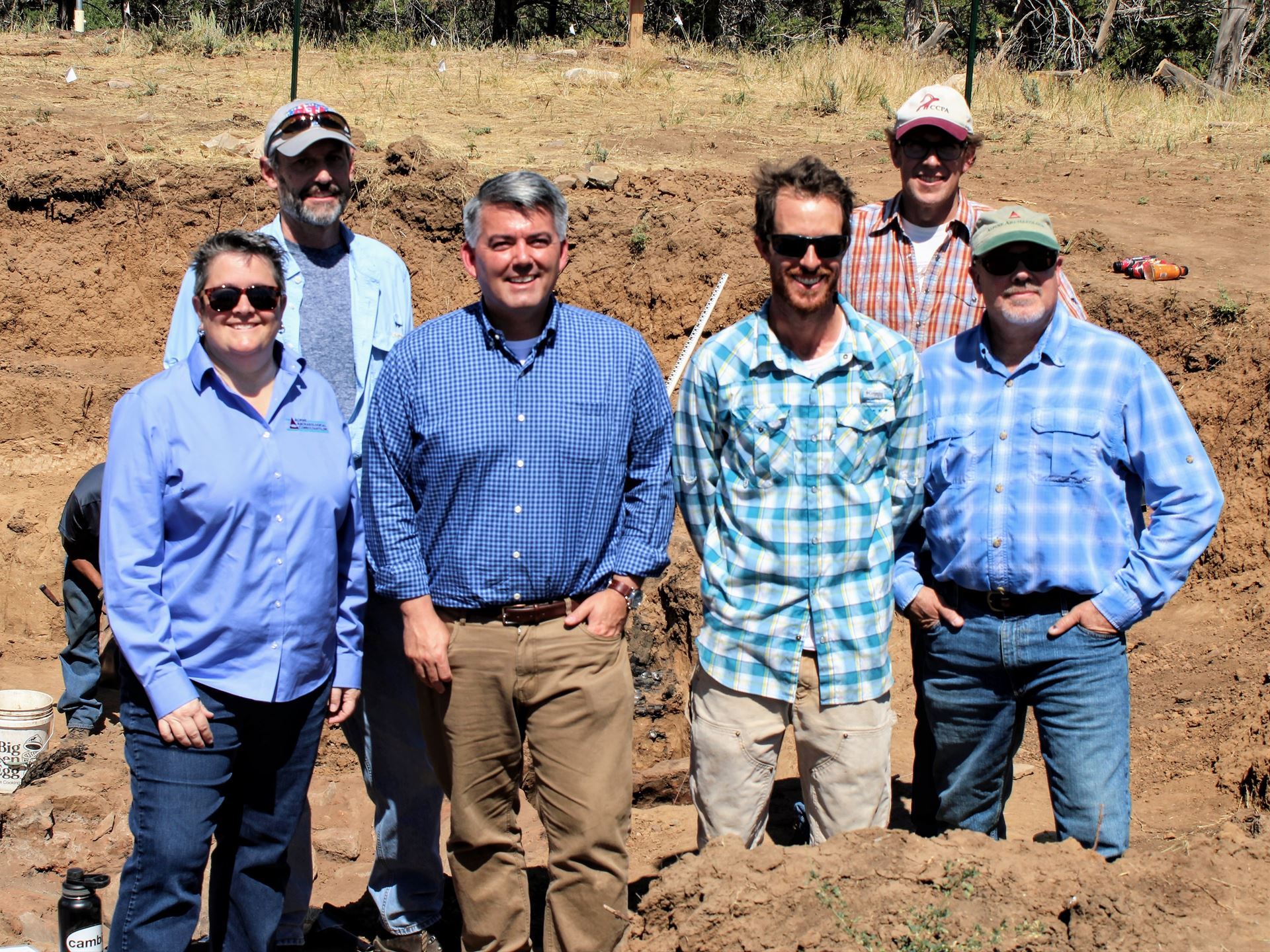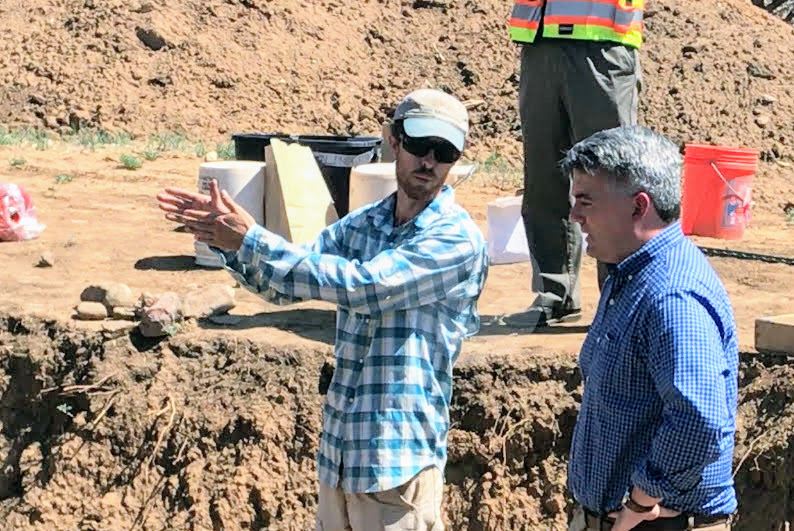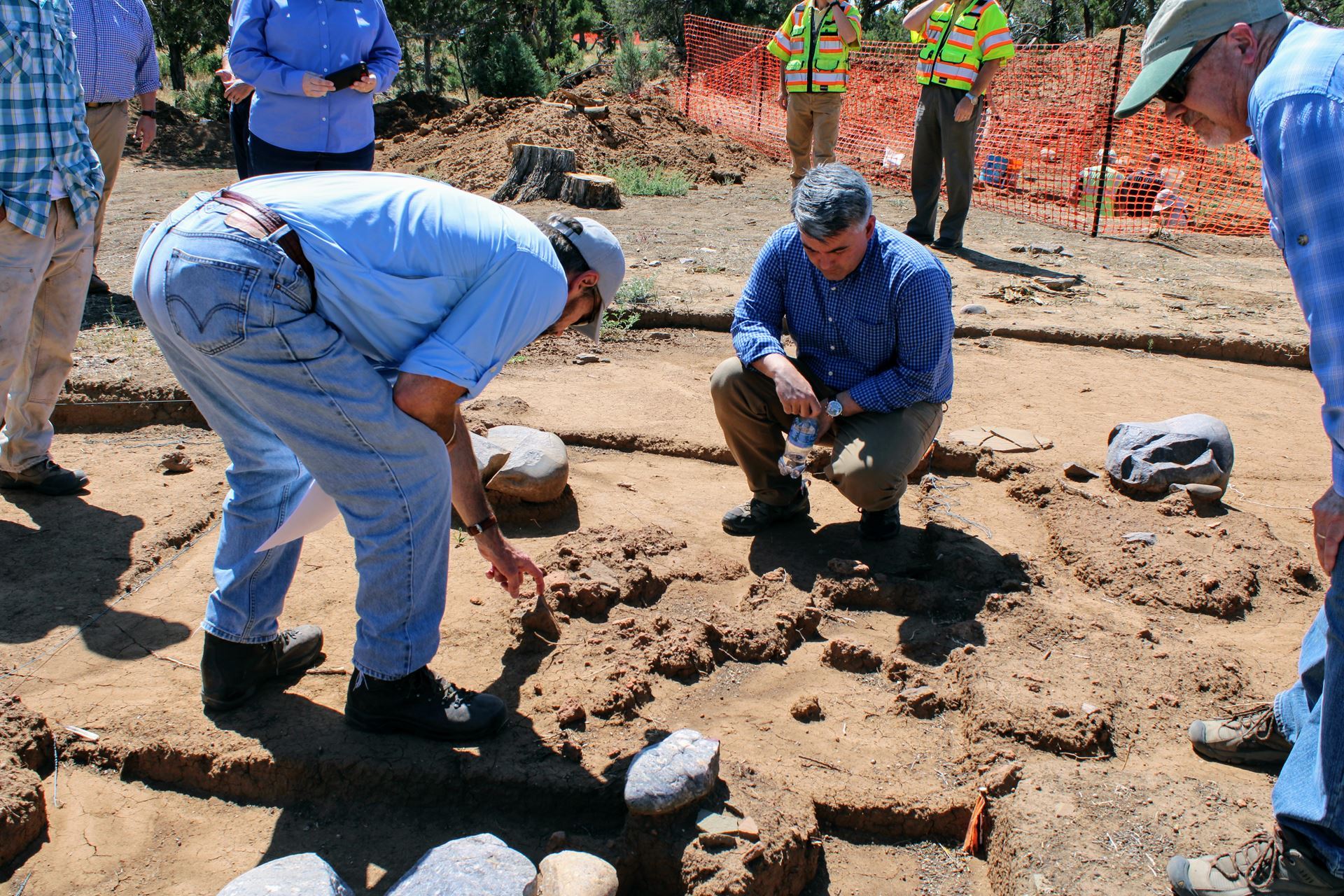This post was authored by Kim Redman of Alpine Archaeological Consultants, Inc.

In May of this year, during ACRA’s annual Hill visits, I was lucky enough to meet one-on-one with Colorado Senator Cory Gardner. I felt lucky that I had that opportunity, because you are normally meeting with their staff, who carry issues forward to them. During that meeting the Senator showed a real interest in archaeology, in addition to our businesses. Towards the end of July, as part of the ‘History Comes to Life Here’ campaign, I sent a request to all my representatives, asking them to visit us while on summer recess (when they are usually in their home states). A month later, I received a call from the Senator’s staff to schedule a visit!

On September 3rd, Senator Gardner visited our archaeological data recovery excavations in Durango, Colorado. The visit was a great success in my estimation. It was not a part of his press tour, so we had him (along with his Chief of Staff and Durango staff member) all to ourselves. From the pick-up at the airport to the departure one hour later, the Senator was fully engaged in questions about what we do, why we do it, the numbers of people employed, the number of companies in Colorado. What struck me particularly was the genuineness of his interest. He relayed stories from his childhood in eastern Colorado, of time spent with Dr Dennis Stanford at a site near his home, about his interest in our past and how we learn about it today. He was certainly interested in costs (construction and mitigation) and property rights, but his interest in what we were finding, what it told us about the past, and how we will share those stories with the public were exciting to hear.


This visit, in my opinion, exemplified what we need more of in CRM. As CRM archaeologists (I can’t speak of other disciplines within CRM), we know that the general public IS interested in what we do, though often it is a mystery to them. Having a politician, much closer to the law-making/changing table, who recognizes that we are businesses that employ people to explore the past to the benefit of the greater public is extremely important. The fact that he thought that what we were doing was really cool – that was icing on the cake!
